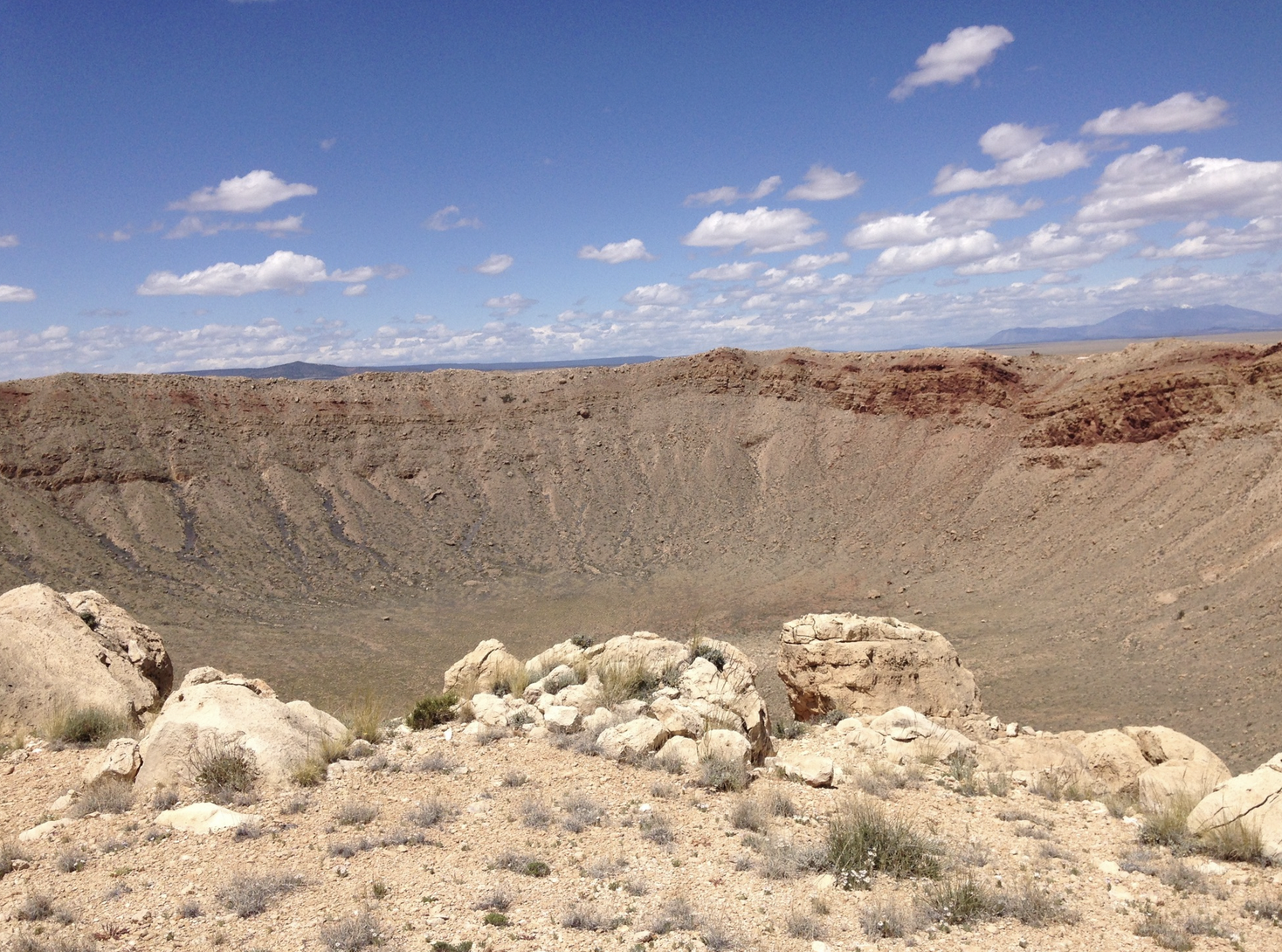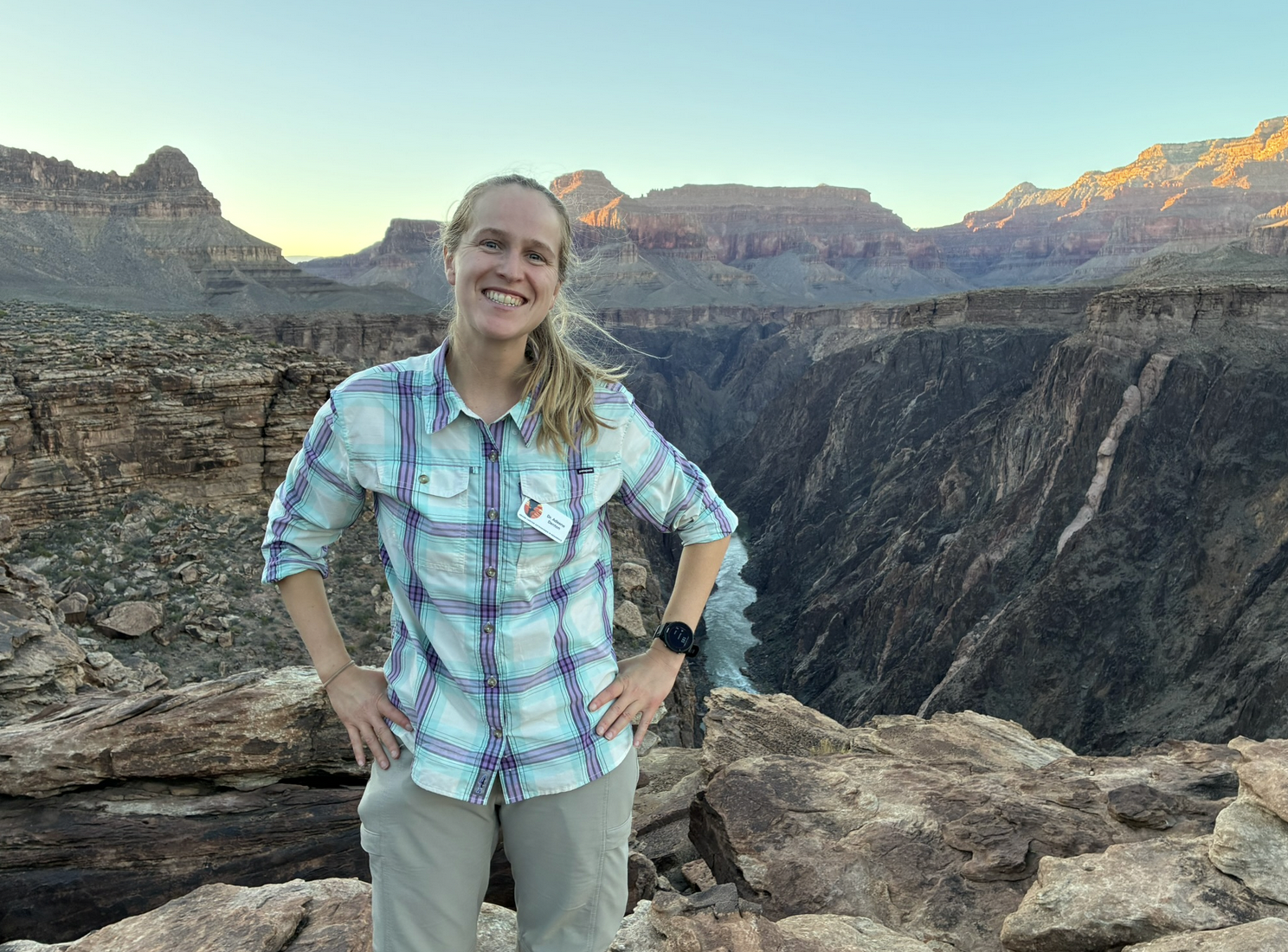This essay is adapted from a speech I gave at my local high school on November 18, 2025. If you’re a kid, have a kid, or just need a reminder that no path to success is linear, maybe it’ll help you too.
What does it mean to “have momentum”? Well, when a Mars-sized object crashed into the Earth 4.6 billion years ago, its momentum obliterated the existing planet, tossing massive chunks of lava into space to form the Moon. Momentum makes things happen, but it’s not random either. A lot has to go right (or wrong, depending on your perspective), for that collision to happen.
Momentum is also part of how we live. We all make choices - what classes to take, where to go to college, what kind of job we want – that give our momentum a push. We’re not like the Earth today, gliding along its stable orbit around the Sun. We’re more like the Earth at the start of the Solar System, getting hit by asteroids, comets, and other planets. These impacts can change our direction and shoot us off somewhere new. At the end, we might be somewhere - or someone - completely different from where we started.
Today, I get to work for NASA and spend my time blowing planets apart on the computer. You could describe how I got here as a straight line: I graduated high school, got a degree in geology and geophysics, applied that in grad school to the Solar System, and now I’m a certified Moon-builder. That makes my path sound simple, like my momentum was always carrying me here, to this point. But living it was much more chaotic – more like being the early Earth, as it was getting whacked by other planets.
For example, when I graduated high school, if I had any momentum, I wasn’t sure where it was taking me yet. I’d spent my time here studying what I liked most - history, writing, and art - but had no idea what to do with it. When people asked what I wanted to do with my life I’d usually say “lawyer,” because all I knew about lawyers was that they had to be good at writing and knowing lots of things, and I could do that. That lasted until I showed up to a Harvard Law School info session, where I realized it was NOT for me. And once I knew that, I was at a loss! I’d spent years convinced I should follow a straightforward path to success, and while I could probably do it, I really, really didn’t want to. I was going to have to figure something else out.
Then I learned geology existed. My school had a geology department, and they were constantly going on field trips to see volcanos, canyons, and coral reefs. When I stumbled into a class I found out who geologists were and what they did. They were figuring out the age of the mountains! They were finding out what killed the dinosaurs! Geology, to me, is like history on the grandest scale. The history of who we are, and how we got here, begins with the formation of the Earth itself. I thought (and still think) this is extremely cool. But I was torn - I couldn’t just study what I thought was cool and become successful, right?
My first ever geology field trip to Mount Shasta, California, in 2013.
Fortunately for me, this was the first of many times I decided “I’m going to study what I love, even if it means I have to figure out what comes next on my own.” That’s how easy it is to shift your momentum, and send yourself in a new direction. Now I was a geology major in addition to being a history major, and thrilled. I was taking all those math and physics classes I’d avoided, and realizing they weren’t so bad once I could apply them to the Earth. Equations of motion? Scary. Equations of motion to describe the movement of the Earth’s tectonic plates? Still scary, but cool enough that I was ready to push through it.
That was the first time I could really feel myself gaining momentum. I was getting all these new skills and they were pushing me along - but I still wasn’t sure what it was all for. Soon I was going to graduate college, trained as both a geologist and a historian, and while I was proud of that, I didn’t what to do with it. Was my window of opportunity for studying what I thought was cool closing?
Then, the summer of my senior year, I became an intern at the Lunar and Planetary Institute, right next to Johnson Space Center in Houston. I’d applied on a whim because I thought space was cool, but now that I’d made it, I wasn’t sure what I was doing. What did a geologist do in space? A lot, it turns out. My new boss took me to Meteor Crater, AZ, one of the best-preserved asteroid impact craters on Earth. What we learn here, he told me, will help us understand craters on the Moon and Mars, because geology happens all across the Solar System, from Mercury to Pluto. I already thought geology was cool. Planetary geology? Maybe the coolest thing ever.
Meteor Crater, in May 2015.
This was my big asteroid impact. I knew planetary geology existed, and now I knew a planetary geologist, which meant there were probably more, which meant maybe - I could become one too. I took all my momentum, all that knowledge I’d built up, and redirected it. I was going to become a planetary geologist, no matter what it took. And what it took, I learned, was a LOT more school. I was going to have to get a PhD. The me who’d started college never imagined getting a PhD, but the me who finished knew it was where I needed to go.
So I did! It turned out to be really, really hard, filled with more difficult choices to make - should I keep my original project, which I’d started to hate, or start over? Should I move across the country for my dream project, even if it meant I’d spend more years in school, and in the middle of nowhere, Indiana? Like before, I’d often find myself wondering if I’d reached my limit of following what I loved. But things were never really over; I just had to shift my momentum and start again. New project? No problem. New state? Some problems, but I’ll figure it out. A PhD is mostly a degree in advanced problem-solving, and by the time I graduated, I’d learned how to solve a LOT of problems.
Since I got my PhD, I’ve continued studying Solar System geology and sharing it with others. I love what I do, because at each juncture I’ve chosen to follow what I think is cool, even when it’s hard. It’s not easy to keep going when you’re not sure what the future holds, or if you’ve made the right choice. I’ve made it as far as I have because, even at my lowest point, my love of learning is greater than my fear of failure - and that’s something I learned from some of my greatest teachers. In school, I learned two things: how to write and how to learn. That’s my foundation, and I’m so grateful for it.
If you take anything away from this essay, I hope it’s this: my path was full of a lot of big changes. I hope, as you confront your own choices about what to do and how to live, you allow yourselves to study the things you can’t stop thinking about, even if you’re not sure where they’ll lead you. Each time I made the choice to choose what I loved, I was scared, because I didn’t know what would happen next, but I knew I wanted to do it enough to figure it out. The skills you learn in school - how to write, how to think, and how to love the act of doing it - they’ll help you. You’re never really alone, because each of us has momentum. Part of my momentum is all the things I’ve learned, and all the people who’ve taught me, helping me in whatever direction I choose to go. They are all, and I mean this in the most complimentary way, my asteroids, pushing me along.
Right now, I get to work for NASA, and I’m not sure where my momentum will carry me next. But that’s okay, because by now I’m pretty sure I can figure it out.


